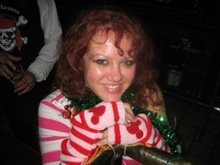Called one of the most original singer-pianists in jazz, Patricia Barber reiterates her unique position as a triple-threat – imaginative pianist, startling vocalist, and innovative composer with the January 2013 release of Smash. After a four year hiatus, Barber utilizes poetry and experience to craft all new originals centered on love, life, loss and emotion. Jazz with the Patricia Barber Quartet at the MUSICIANS INSTITUTE CONCERT HALL – Saturday, March 2nd. Stage time is 8pm. Tickets are $20 and $30. The Hall is located at 1655 N. McCadden Place in Hollywood. For tickets go online to brownpapertickets.com.
On Smash, her January 22, 2013 debut on Concord Jazz, Patricia Barber celebrates with a new band and a dozen new compositions while continuing her two-decade crusade to retrieve the ground that jazz musicians long ago ceded to pop and rock: the realm of the intelligent and committed singer-songwriter, tackling even familiar subjects (like love and loss) with a nuance and depth beyond the limits of the Great American Songbook.
A prime example is the title track, where Barber paints the end of a love affair with subtly stated allusions to destruction: the erosion of edifices; a bloody road accident. The lines are more akin to poetry than conventional song lyrics, as she depicts “the crumbling of tall castles built / on kisses and blood / and dreams so like sand.” The song’s reprise compares “the sound of a heart breaking” to “the sound of / the red on the road” – a devastatingly effective mélange of synesthetic imagery. Aided by a raw, forceful guitar solo, the performance illuminates a counter-intuitive realization about loss:
“It just struck me, as it does everyone who experiences great loss, that on the outside, no one can tell,” Barber explains. “You go to the grocery store, and everything’s the same, which is shocking. It struck me that this is the sound of a heart breaking: silence. You’re alone. And I felt that this was an interesting juxtaposition, since the sound of a heart breakingshould be the loudest, screamiest, shriekiest combination of sounds there could be.”
Taking the subject of “loud, shrieky” emotion, the track “Scream,” is paradoxically set to a gentle, quiet melody that belies its message, and which has proved extremely popular with those audiences hearing it prior to this recording.
Her anger finds a more whimsical outlet in the catchy “Devil’s Food,” written specifically from Barber’s perspective as a gay woman in reaction to last year’s highly publicized efforts to quash gay-marriage initiatives around the country. “It made me mad, and it made me want to make a declaration – but to make it fun. I find one of the best ways to bring people to your perspective is of course to charm them, and music can always do that. I mean, the lyrics are fairly graphic – ‘sweet on sweet, meat on meat’ – but the music is so beguiling, I think I make the case. And when it becomes clear that it’s turning into a gay disco song, it’s really fun watching people’s reaction, which is surprise and mostly delight.”
Many of her arrangements attain a thrilling friction between style and substance. (For a defining example, turn to “Redshift,” in which Barber weds the science-geek lyric – itself a miraculous marriage of physics and love – to the gentle lull of a bossa-nova beat.) Throughout the album, her Chicago-based quartet – comprising the superlative rhythm team of bassist Larry Kohut and drummer Jon Deitemyer, with the edgy and arresting John Kregor on guitars – functions as a translucent extension of Barber’s own musicality.
The other songs on Smash represent the fruit of Barber’s decision to write what she calls a “syllabic song series”; these pieces resulted from a disciplined framework, based on the number of beats in each poetic line. (For instance, “The Swim” consists entirely of two-syllable lines; “Spring Song” has three such phonemes per line; “The Wind Song,” six.) “I studied the songwriters, but now I just study the poets,” she explains. “I’m trying to make the poetry of a finer order. But I still need to rhyme, because rhyme is rhythm, and rhythm is music.”
Audiophiles will be especially glad to know that Smash reunites Barber with her long-time recording engineer Jim Anderson (with whom she first worked in 1994, on her Premonition Records debut Café Blue.) Anderson – who is Professor of Recorded Music at New York University’s Tisch School for of the Arts – has again captured Barber’s music with the clarity and presence that led Stereophile Magazine to label Café Blue a “Record To Die For.” HDTracks and Mastered for iTunes versions ofSmash are also available.





No comments:
Post a Comment